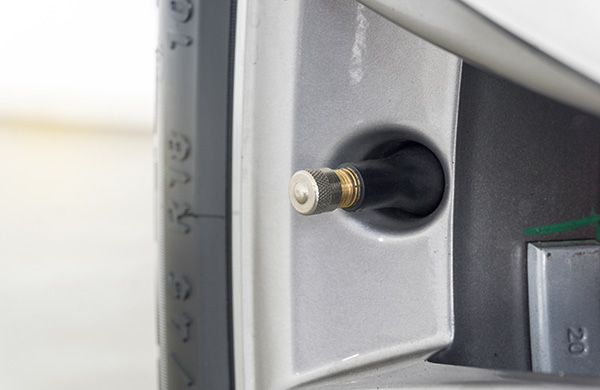
Tire troubles can be frustrating, especially when you can’t pinpoint an obvious cause. You wake up to a flat or low-pressure tire, but when you inspect it, there’s no visible puncture or damage. It’s a confusing and annoying situation. There are several possible reasons behind this. Let’s take a closer look at why this happens and what you can do to keep your tires in top shape.
Temperature Fluctuations Can Cause Air Loss
Did you know that something as simple as a change in the weather can affect your tire pressure? Temperature fluctuations are one of the leading causes of tire deflation without a puncture. This is especially noticeable in colder months, where sudden drops in temperature can cause the air inside your tires to contract. For every 10°F drop in temperature, your tires can lose about 1 to 2 pounds per square inch (PSI) of pressure.
If you’ve noticed your tires are losing air overnight or during colder periods, this might be the reason. While this type of air loss isn’t typically due to any damage, it’s important to keep an eye on your tire pressure, especially when the weather changes drastically.
Damaged or Worn-Out Valve Stems
Valve stems are the small, usually rubber or metal pieces that allow you to inflate or check the air pressure in your tires. Over time, valve stems can wear out, crack, or become damaged, leading to slow air leaks. Even a slight defect can cause gradual deflation, and in some cases, the leak might be so small that it’s barely noticeable.
If your tire continues to lose air despite no visible damage or punctures, it might be worth checking the valve stem. Replacing a faulty valve stem is a relatively inexpensive fix, and it can prevent the inconvenience of constantly having to top off your tire pressure.
Bead Leaks
The bead is the part of the tire that makes contact with the rim of your wheel. If the bead is not properly seated or has sustained damage, it can allow air to escape, causing slow tire deflation over time. Bead leaks can occur if the wheel is corroded, bent, or improperly installed. You may notice this issue more frequently after getting new tires installed or following an impact like hitting a pothole or curb.
Bead leaks are often more difficult to spot without professional equipment, so if you suspect this could be the issue, it’s best to take your car to a trusted repair shop for an inspection.
Small, Hidden Cracks or Sidewall Damage
Sometimes, the problem lies not in a visible puncture but in tiny, almost invisible cracks in your tire’s sidewall. Over time, tires are subjected to significant wear and tear, which can cause small cracks to form in the rubber. These cracks, while not as obvious as a nail or sharp object, can still lead to air escaping.
In addition to cracks, damage to the sidewall caused by driving over rough terrain or curbs can also result in slow deflation. Sidewall damage is particularly dangerous because it can weaken the structural integrity of your tire, so if you notice any unusual bulges or cracks, it’s a good idea to get your tires checked immediately.
What Can You Do to Prevent Tire Deflation?
While some causes of tire deflation are unavoidable (like temperature changes), there are steps you can take to minimize the chances of dealing with a deflating tire. Here are a few tips to help you maintain healthy tire pressure:
- Regularly check your tire pressure. Don’t wait until you notice a flat to inspect your tires. Checking the pressure once a month can help you spot any slow leaks before they become a bigger issue.
- Inspect your tires for damage. Look for small cracks, sidewall damage, or bulges that could indicate a potential issue.
- Replace old valve stems. When getting new tires, consider having the valve stems replaced to avoid slow leaks from wear and tear.
Is your tire losing air without any visible damage? It might be time for a professional inspection. Bring your car to Marc Yount’s Tire Pros today, and we’ll help you get to the bottom of the issue. We offer fast and reliable tire services to keep you safe on the road.